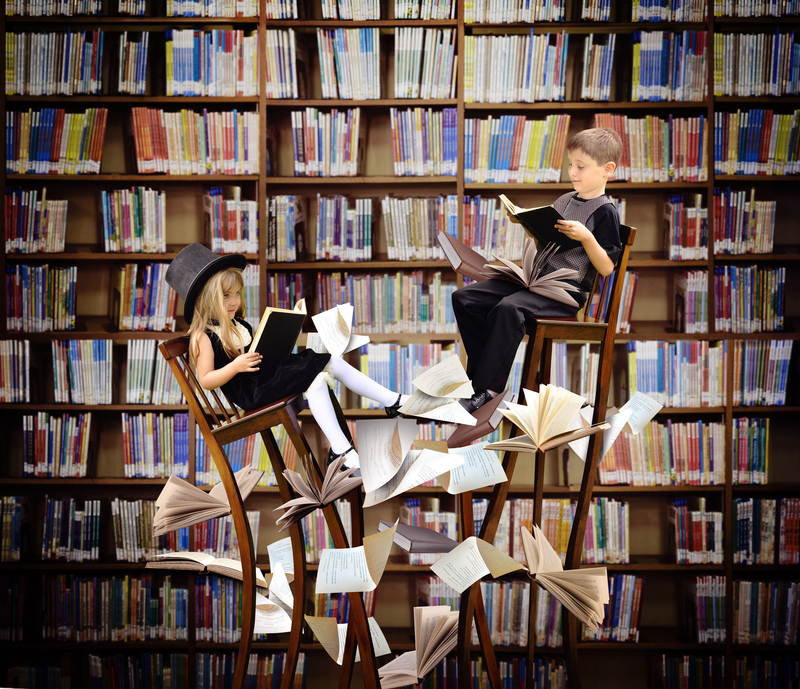John Sergeant and Professor Nicola Watson talk about Swallows and Amazons.
Transcript
John Sergeant: We also see direct references by the children to the books they’ve read.
Prof. Nicola Watson: We do, Robinson Crusoe the obvious one. I mean Robinson Crusoe is the grandfather text for the whole thing, although there are a lot of other sorts of reading kicking around in there.
John Sergeant: Well there’s Treasure Island.
Prof. Nicola Watson: There is Treasure Island, for which, you know, which is the reason that treasure is eventually found. Coral Island, the whole idea of desert islands and surviving on them, that’s Ballantyne, of course. And that whole 1890s discourse of true stories of exploration. Books called things like Brave Sons of Empire, which we’re supposed to be emulating.
Swallows and Amazons also has roots in a book by somebody called Richard Jefferies called Bevis, which is all about how a boy goes to his own island and there he learns to swim and shoot and fish, and that’s in a reservoir just round Swindon way.
So there’s a way in which both Bevis and Swallows and Amazons become realistic stories of children’s lives that really happened that could still really happen in a real place.
Swallows and Amazons is full of allusions to older children’s books. Some of them inspire the children. As they spend their summer holiday sailing their boat and camping on an island, they act out their own versions of Robinson Crusoe by Daniel Defoe and Treasure Island by Robert Louis Stevenson. Ransome based his own story on elements from these popular children’s classics, knowing that his readers would be excited to read about children just like them enjoying adventures like those in their favourite stories.
Ransome was also influenced by other books about children’s outdoor adventures including Bevis by Richard Jefferies. Written in the 1880s, Bevis is the story of a boy’s adventures on and around a lake in Wiltshire. Jefferies had shown how a book could be written which was an exciting story for children but which also showed how letting children explore the natural world could help to educate them and to develop their characters. This is what happens in Swallows and Amazons, as the children experience for the first time the sorts of responsibilities which they will soon have to take on for real as they grow up.
More about Swallows and Amazons
The real Swallows: See the draft of Swallows and Amazons and hear about the children’s characters.
Make a map: Go on an adventure with Swallows and Amazons as you make a map and set sail for Wild Cat Island.
The Secret Life of Books: Find out more about the other books in the series.
Studying Children's Literature: Discover more about this course (EA300) from The Open University
Expand your mind
-
Poetry prescription
Take part now to access more details of Poetry prescriptionFeeling loving, adventurous or scared? Poetry Prescription will find you the perfect poem to reflect your mood.

Activity
Level: 1 Introductory
-
The author at home
Watch now to access more details of The author at homeWhy do people visit museums of writers' homes? Discover the secret life of authors in this short video.

Video
Level: 1 Introductory
Try free courses
-
Start writing fiction: characters and stories
Learn more to access more details of Start writing fiction: characters and storiesStart writing fiction is a free course that helps you to get started with your own fiction writing, focusing on the central skill of creating characters.

Free course
24 hours
Level: 1 Introductory
-
What is poetry?
Learn more to access more details of What is poetry?Have you always wanted to try to write poetry but never quite managed to start? This free course, What is poetry?, is designed to illustrate the techniques behind both the traditional forms of poetry and free verse. You will learn how you can use your own experiences to develop ideas and how to harness your imagination.

Free course
12 hours
Level: 1 Introductory
-
Approaching prose fiction
Learn more to access more details of Approaching prose fictionDo you want to get more out of your reading? This free course, Approaching prose fiction, is designed to develop the analytical skills you need for a more in-depth study of literary texts. You will learn about narrative events and perspectives, the setting of novels, types of characterisation and genre.

Free course
20 hours
Level: 2 Intermediate
-
Approaching poetry
Learn more to access more details of Approaching poetryDo you want to get more out of your reading of poetry? This free course, Approaching poetry, is designed to develop the analytical skills you need for a more in-depth study of literary texts. You will learn about rhythm, alliteration, rhyme, poetic inversion, voice and line lengths and endings. You will examine poems that do not rhyme and learn ...

Free course
20 hours
Level: 2 Intermediate
Study with the Open University
-
Study Children's Literature with the OU
Learn more to access more details of Study Children's Literature with the OUFrom 18th Century chapbooks through to Young Adult novels, explore a vibrant world.

External link
Rate and Review
Rate this video
Review this video
Log into OpenLearn to leave reviews and join in the conversation.
Video reviews